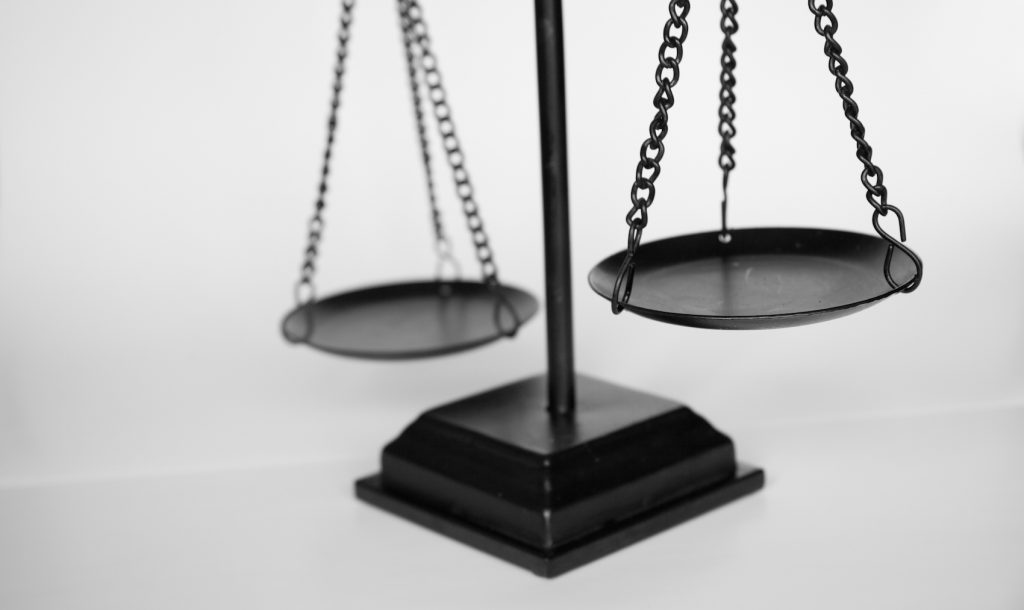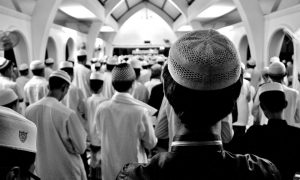A coup cannot be carried out by the military alone. In Thailand’s case, watchdog agencies and the judiciary helped not only to pave the way for the most recent coups in 2006 and 2014, they also contributed to sustaining the ensuing regimes. Some, like the National Anti-Corruption Commission, refuse to investigate the junta’s corruption scandals even while pursuing those of its foes. Others, like the courts, punish dissent to keep opposition at bay. The junta has returned the favour with promotions, salary increases and other perks.
But in 2018, the public was watching as the Court of Justice tried to reap the fruits of its service.
The Court of Justice plays no less significant a role in sustaining the military regime, yet has generally kept a much lower profile than the controversial Constitutional Court. Post-coup Thailand has witnessed a surge in political cases, including sedition and thought crimes. The Court may acquit some dissenters, suspend sentencing, or imprison others. But the basic premise is clear. Following the long-held precedent in place since 1962, a junta’s order is law. The Court never questions the legality of the junta’s orders, whether they regard asset confiscation, unwarranted detention, intimidation or torture.
Politicisation of the judiciary took off especially in 2006 when the public’s distrust of elected politicians began to soar. Not only has the Court of Justice’s jurisdiction expanded to encompass a widening array of political crimes, the judiciary has become isolated from political oversight. Since 2007, the Court has been able to propose bills concerning its operations—including budgetary matters—directly to the legislature, without the cabinet’s approval. This isolation theoretically allows the Court to act as a check on elected politicians without fear of backlash.
Over the years, the Court of Justice has been subject to criticism about its decisions, which are publicly accessible. But rarely has the Court received attention for the less well-documented topic of benefits. As the importance of the judiciary in sustaining the regime grows, so does its size. Judges’ expanding roles in prosecuting dissidents and political opposition mean larger budgets for new offices, new buildings and new personnel. In comparison to politically-influenced rulings, the self-enrichment of judges previously constituted the lesser-known collateral damage of politicising the judiciary.
Initially, a number of senior judges expressed discomfort over the privileges implied in the 2006 coup, fearing that their new powers would invite political meddling that would eventually taint the Court’s neutrality. According to one judge, the Court should be careful about proposing bills to the legislature. The judicial institution should not actively make demands of the political branches, lest those in political office view the bill’s passage not as legally due but as a favour. It was the judge’s fear that they would then expect the judiciary to reciprocate in the form of political cases.
But any reservations in 2007 seemed to have vanished by 2018. This year, the Court of Justice involved itself in high-profile scandals, with its lavish spending confronting the public.
In April, a massive protest broke out in the city of Chiang Mai over the construction of a new residence for judges. The location of the project was carved right into the slope of Doi Suthep, a spiritual place with ecological significance for locals. When local conservation groups raised concerns regarding the project over a year ago, the court threatened them with contempt of court. Protest then erupted when the residence was near completion.
In the face of the tenacity of the protest, the junta was about to back down. But deferring to judicial independence, it could only make the suggestion that the Court should consider relocation, with the government willing to provide a new site. But the Court of Justice was adamant. A senior judge gave a condescending interview, threatening that judges would disregard their duties to Chiang Mai citizens if they were not allowed to move into the new residence. The incident was then referred as Moo Baan Paa Waeng: the village that nicked the forest.
The matter is delicate. Across the country, judges are housed in accommodations of varying quality. Some houses are in despairing conditions, where new accommodation projects would be justified. But the residence in Chiang Mai took the form of luxurious mansions costing several million baht per unit. Just as damning, the residence thrusts right into a national forest reserve. Forest encroachment has long been a point of contention in the Thai justice system. Due to bad land policy (or lack thereof), landless locals are regularly forced to inhabit forests for which they are arrested and fined, or imprisoned. The court’s choice of location was criticised as an example of Thailand’s double-standard: the court was able to legally reclaim the forest to build luxurious houses while the poor are jailed.
Ultimately, the Court of Justice agreed to ‘reconsider’ the project. However, it forbade outsiders to inspect the site and no progress has been made since. Residents moved in. It seems that Chiang Mai citizens were tricked into a truce. The latest round of resistance occurred in November, when a list of judges residing in the controversial houses was posted in public by an anonymous hand. Immediately, soldiers visited protest leaders, confiscated phones and computers, and investigated them for defamation. When the police decided to charge the suspects, the question arose of how the Court could offer a fair trial when it was itself a party.
In a second controversial development, the National Legislative Assembly (NLA) passed a law in November to allow remuneration for judicial meetings. Appellate court judges, especially those sitting on the Supreme Court, meet once a month en banc to deliberate cases of special attention. The bench deliberation produces authoritative precedents. These meetings have been carried out since the conception of the judiciary and have been considered part of a judge’s duty. However, the Court is now demanding to be paid extra for services under its job description.
Initially, the plan was objected to by the Council of State, the legal advisor to the government. Though not legally binding, an opinion from the Council, on which distinguished academics as well as high-ranking senior officials sit, carried considerable weight. Still, with some manoeuvring, the bill made its way to the NLA. To add insult to injury, the bill had retroactive effect and will cost slightly over a billion baht over the next five years. Observers criticised the move as ridiculous. The Thai economy is crumbling but the court exploited its relationship with the junta to enrich itself.
The NCPO did not reject the introduction of remuneration for judicial meetings. The junta is known for its generous handouts to armed forces, civil servants and watchdog agencies. Payments are especially essential during this critical time, when an election is coming up, tentatively, early next year. A successful transition and maintenance of the junta’s legacy require backing from every agency.
Besides, the Court of Justice is very powerful. No government has ever dared to challenge it. Getting into a fight with a much-revered organisation like the Court would likely plunge a government into crisis. In 2015, when the government considered improving the judicial admission system and introducing more oversight to the judicial commission (in charge of personnel and budget management), the Court’s strong reaction prompted the junta to drop the plan.
These two recent scandals have exposed the Court of Justice’s exploitation of its newly vested powers for self-enrichment. Traditionally, judges have presented themselves in a sage-like manner, living in frugality and being humble. Getting into a fight over luxurious housing was unthinkable. But in 2018, the Court of Justice’s spending attracted much spotlight.Public perceptions of the Court of Justice may be changing. The general public had previously thought of the Court as prejudiced, but yet to be corrupted. These scandals have now brought the Court to the level of local politicians or civil servants, who the public disdains for their alleged self-interest. People have begun to associate these benefits with the Court’s complicity in the military regime—the situation much feared by some judges back in 2007.
Judicial independence does not always make courts immune from improper influence. Under conditions where the junta seeks to patron those institutions which should act as checks and balances, independence without adequate accountability has allowed the Court of Justice to exploit its influence over the government. As political instability continues, the Court goes on to capitalise on its power.
These scandals will not bring about change any time soon. The Court of Justice is not going to crumble and there will be neither revolt nor reform. Yet the Court’s legitimacy derives much from its personal integrity. If the public’s trust is to be compromised, it will be interesting to see how the life of the judiciary unfolds.
 Facebook
Facebook  Twitter
Twitter  Soundcloud
Soundcloud  Youtube
Youtube  Rss
Rss 


